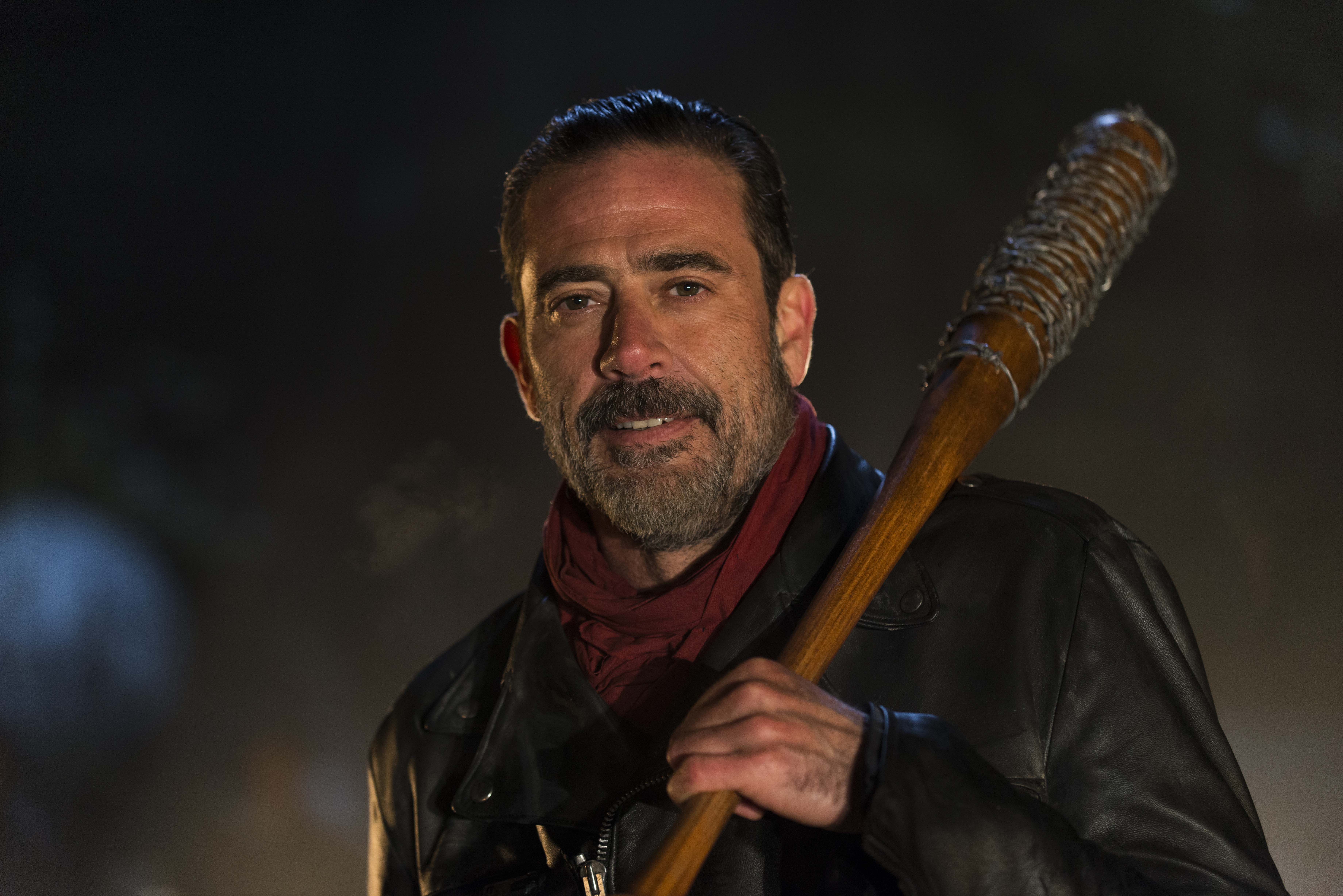Andrew from The Walking Dead has become one of the most iconic characters in the post-apocalyptic world of AMC's hit series. Known for his complex personality and pivotal role in the storyline, Andrew, better known as "The Governor," has captivated audiences worldwide. Whether you're a long-time fan or new to the series, understanding Andrew's journey is essential to grasping the show's deeper themes of survival, morality, and leadership.
The Walking Dead, created by Frank Darabont and based on the comic series by Robert Kirkman, has consistently pushed the boundaries of storytelling in the zombie genre. Andrew's character serves as a stark reminder of how power can corrupt and how survival often comes at a moral cost. His presence in the series not only drives the plot forward but also challenges viewers to reflect on their own values and choices in dire situations.
In this comprehensive guide, we will explore Andrew's origins, his rise to power, and his eventual downfall. We will delve into his motivations, relationships, and the lasting impact he has had on the series. By the end of this article, you'll have a deeper understanding of why Andrew remains one of the most memorable characters in The Walking Dead universe.
Read also:Exploring The Intriguing Relationships Of Michael Consuelos
Table of Contents
Biography of Andrew
Andrew, better known as The Governor, was introduced in Season 3 of The Walking Dead. He is portrayed by British actor David Morrissey, whose performance brought depth and complexity to the character. Andrew's backstory reveals a man who was once a simple family man, living a quiet life before the zombie apocalypse. However, the collapse of society and the loss of his loved ones transformed him into a ruthless leader.
Below is a table summarizing Andrew's key personal details and background:
| Full Name | Philip Blake (Andrew) |
|---|---|
| Portrayed By | David Morrissey |
| First Appearance | Season 3, Episode 1 |
| Last Appearance | Season 4, Episode 8 |
| Occupation | Leader of Woodbury |
| Family | Wife: Penny Blake (deceased) |
Early Life and Transformation
Before the apocalypse, Andrew lived a relatively normal life. He was a family man who cherished his wife and daughter. However, the outbreak of the zombie virus and the subsequent chaos led to the tragic death of his wife. This loss deeply affected Andrew, pushing him toward a path of vengeance and control. His transformation into The Governor was marked by a growing obsession with maintaining order, even at the cost of morality.
The Rise to Power
Andrew's rise to power began when he took control of Woodbury, a seemingly safe haven for survivors. His charisma and ability to inspire trust allowed him to establish himself as the community's leader. Under his rule, Woodbury became a thriving settlement, offering its residents a semblance of normalcy in a chaotic world.
Building a Community
Andrew's leadership style was initially appealing to the residents of Woodbury. He provided them with food, shelter, and protection from the dangers of the outside world. His ability to organize resources and defend the community against threats earned him loyalty and admiration. However, beneath the surface, Andrew's darker instincts began to emerge.
Manipulation and Control
As Andrew's power grew, so did his paranoia and ruthlessness. He began using manipulation and fear to maintain control over Woodbury. His actions included imprisoning dissidents, executing perceived threats, and even keeping his zombified daughter, Penny, hidden in his apartment. These decisions marked the beginning of his descent into tyranny.
Read also:Unraveling The Mystery Of Storage Wars Death 2024
Governor's Leadership Style
Andrew's leadership style was a mix of charisma, manipulation, and authoritarian control. He understood the importance of projecting strength and stability to his followers, which initially made him a beloved figure. However, his methods became increasingly ruthless as he sought to eliminate any threats to his power.
Strengths as a Leader
- Charismatic and inspiring to his followers.
- Skilled at organizing resources and defending the community.
- Capable of making tough decisions for the greater good (in his eyes).
Weaknesses as a Leader
- Paranoid and distrustful of others.
- Willing to sacrifice morality for power and control.
- Inability to handle personal loss and grief in a healthy manner.
Key Conflicts and Rivalries
Andrew's tenure as The Governor was marked by several key conflicts, most notably with Rick Grimes and his group. These rivalries not only drove the plot of The Walking Dead but also highlighted the moral complexities of survival in a post-apocalyptic world.
Rick Grimes vs. The Governor
The rivalry between Rick Grimes and Andrew is one of the most iconic in The Walking Dead. Rick, a former sheriff's deputy, represents a moral compass in the series, while Andrew embodies the darker side of human nature. Their clashes often centered around differing philosophies of leadership and survival.
Woodbury vs. The Prison
The conflict between Woodbury and the prison group symbolized the larger struggle between order and chaos. Andrew's attempts to conquer the prison and eliminate Rick's group were driven by his desire for dominance and revenge. These battles showcased the brutal realities of life in a zombie-infested world.
Moral Dilemmas and Choices
Andrew's character is defined by the moral dilemmas he faces and the choices he makes. His decisions often blur the line between right and wrong, forcing viewers to question their own beliefs about morality and survival.
The Death of Hershel
One of Andrew's most controversial actions was the execution of Hershel, a beloved character in the series. This act was not only a strategic move to weaken Rick's group but also a demonstration of Andrew's willingness to cross ethical boundaries for his goals.
His Relationship with Penny
Andrew's relationship with his zombified daughter, Penny, adds another layer of complexity to his character. His refusal to let her go, even in death, highlights his inability to cope with loss and his descent into madness.
The Downfall of Andrew
Andrew's downfall was inevitable, given his increasingly unstable behavior and the growing resistance against his rule. His inability to adapt to changing circumstances and his reliance on fear ultimately led to his demise.
The Fall of Woodbury
The Governor's leadership crumbled when his own people turned against him. The residents of Woodbury, disillusioned by his actions, rebelled and forced him to flee. This marked the beginning of the end for Andrew.
Final Confrontation
Andrew's final confrontation with Rick Grimes and his group ended in his death. His inability to let go of his thirst for revenge and his refusal to change sealed his fate. His death served as a cautionary tale about the dangers of unchecked ambition and the corrupting influence of power.
Andrew's Legacy in The Walking Dead
Despite his flaws, Andrew's character left a lasting impact on The Walking Dead. His actions shaped the trajectory of the series and influenced the development of other characters.
Influence on Rick Grimes
Andrew's rivalry with Rick Grimes forced Rick to confront his own leadership style and moral compass. The lessons Rick learned from his encounters with Andrew helped him evolve into a stronger and more resilient leader.
Impact on the Series
Andrew's presence in the series raised the stakes and introduced new layers of complexity to the storyline. His character challenged viewers to reflect on the nature of power, morality, and survival in a world where the rules of society no longer apply.
Impact on Other Characters
Andrew's actions had a profound impact on several key characters in The Walking Dead. His interactions with them revealed different facets of his personality and influenced their development throughout the series.
Maggie and Glenn
The Governor's attack on the prison and his role in Hershel's death deeply affected Maggie and Glenn. Their grief and anger fueled their determination to survive and fight back against tyranny.
Milton Mamet
Andrew's relationship with Milton, his loyal scientist, highlighted the tension between loyalty and morality. Milton's eventual betrayal of Andrew underscored the consequences of blind obedience to a flawed leader.
Audience Reception and Popularity
Andrew from The Walking Dead remains one of the most polarizing characters in the series. His complexity and moral ambiguity have sparked countless discussions among fans and critics alike.
Fan Reactions
Fans of the series have praised David Morrissey's portrayal of Andrew, noting his ability to bring depth and nuance to the character. Despite his villainous actions, many viewers found themselves empathizing with Andrew's struggles and motivations.
Critical Acclaim
Andrew's character has been widely acclaimed by critics for its contribution to the show's narrative depth. His storyline has been cited as one of the most compelling aspects of The Walking Dead, showcasing the series' ability to explore complex themes through its characters.
Conclusion
Andrew from The Walking Dead is a character who embodies the complexities of human nature in a post-apocalyptic world. His journey from a grieving father to a ruthless leader serves as a powerful commentary on the dangers of unchecked ambition and the moral compromises often required for survival.
By exploring Andrew's rise to power, his conflicts with other characters, and his eventual downfall, we gain a deeper understanding of the themes that define The Walking Dead. His legacy continues to resonate throughout the series, influencing both the characters and the audience.
If you enjoyed this article, feel free to leave a comment below sharing your thoughts on Andrew's character. Don't forget to share this guide with fellow fans and explore more articles on The Walking Dead to dive deeper into this captivating series.


